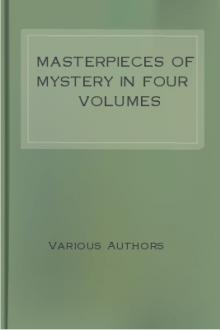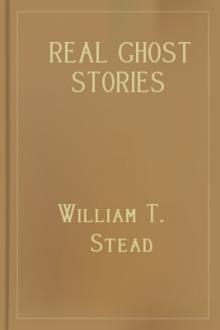Varney the Vampire; Or, the Feast of Blood by Prest and Rymer (ereader iphone .txt) 📗

- Author: Prest and Rymer
Book online «Varney the Vampire; Or, the Feast of Blood by Prest and Rymer (ereader iphone .txt) 📗». Author Prest and Rymer
"Hilloa! bravo!" cried the admiral; "the more the merrier! Here's a combined squadron! Why, how came you here, Mr. Henry Bannerworth?"
"Bannerworth!" said Mortimer; "is that young man's name Bannerworth?"
"Yes," said Henry. "Do you know me, sir?"
"No, no; only I—I—must be off. Does anybody know anything of Sir Francis Varney?"
"We did know something of him," said the admiral, "a little while ago; but he's taken himself off. Don't you do so likewise. If you've got anything to say, stop and say it, like an Englishman."
"Stuff! stuff!" said Mortimer, impatiently. "What do you all want here?"
"Why, Sir Francis Varney," said Henry,—"and I care not if the whole world heard it—is the persecutor of my family."
"How? in what way?"
"He has the reputation of a vampyre; he has hunted me and mine from house and home."
"Indeed!"
"Yes," cried Dr. Chillingworth; "and, by some means or another, he seems determined to get possession of Bannerworth Hall."
"Well, gentlemen," said Mortimer, "I promise you that I will inquire into this. Mr. Chillingworth, I did not expect to meet you. Perhaps the least we say to each other is, after all, the better."
"Let me ask but one question," said Dr. Chillingworth, imploringly.
"Ask it."
"Did he live after—"
"Hush! he did."
"You always told me to the contrary."
"Yes; I had an object; the game is up. Farewell; and, gentlemen, as I am making my exit, let me do so with a sentiment:—Society at large is divided into two great classes."
"And what may they be?" said the admiral.
"Those who have been hanged, and those who have not. Adieu!"
He turned and left the room; and Mr. Chillingworth sunk into a chair, and said, in a low voice,—
"It's uncommonly true; and I've found out an acquaintance among the former."
"-D—n it! you seem all mad," said the admiral. "I can't make out what you are about. How came you here, Mr. Henry Bannerworth?"
"By mere accident I heard," said Henry, "that you were keeping watch and ward in the Hall. Admiral, it was cruel, and not well done of you, to attempt such an enterprise without acquainting me with it. Did you suppose for a moment that I, who had the greatest interest in this affair, would have shrunk from danger, if danger there be; or lacked perseverance, if that quality were necessary in carrying out any plan by which the safety and honour of my family might be preserved?"
"Nay, now, my young friend," said Mr. Chillingworth.
"Nay, sir; but I take it ill that I should have been kept out of this affair; and it should have been sedulously, as it were, kept a secret from me."
"Let him go on as he likes," said the admiral; "boys will be boys. After all, you know, doctor, it's my affair, and not yours. Let him say what he likes; where's the odds? It's of no consequence."
"I do not expect. Admiral Bell," said Henry, "that it is to you; but it is to me."
"Psha!"
"Respecting you, sir, as I do—"
"Gammon!"
"I must confess that I did expect—"
"What you didn't get; therefore, there's an end of that. Now, I tell you what, Henry, Sir Francis Varney is within this house; at least, I have reason to suppose so."
"Then," exclaimed Henry, impetuously, "I will wring from him answers to various questions which concern my peace and happiness."
"Please, gentlemen," said the woman Deborah, making her appearance, "Sir Francis Varney has gone out, and he says I'm to show you all the door, as soon as it is convenient for you all to walk out of it."
"I feel convinced," said Mr. Chillingworth, "that it will be a useless search now to attempt to find Sir Francis Varney here. Let me beg of you all to come away; and believe me that I do not speak lightly, or with a view to get you from here, when I say, that after I have heard something from you, Henry, which I shall ask you to relate to me, painful though it may be, I shall be able to suggest some explanation of many things which appear at present obscure, and to put you in a course of freeing you from the difficulties which surround you, which, Heaven knows, I little expected I should have it in my power to propose to any of you."
"I will follow your advice, Mr. Chillingworth," said Henry; "for I have always found that it has been dictated by good feeling as well as correct judgment. Admiral Bell, you will oblige me much by coming away with me now and at once."
"Well," remarked the admiral, "if the doctor has really something to say, it alters the appearance of things, and, of course, I have no objection."
Upon this, the whole three of them immediately left the place, and it was evident that Mr. Chillingworth had something of an uncomfortable character upon his mind. He was unusually silent and reserved, and, when he did speak, he seemed rather inclined to turn the conversation upon indifferent topics, than to add anything more to what he had said upon the deeply interesting one which held so foremost a place in all their minds.
"How is Flora, now," he asked of Henry, "since her removal?"
"Anxious still," said Henry; "but, I think, better."
"That is well. I perceive that, naturally, we are all three walking towards Bannerworth Hall, and, perhaps, it is as well that on that spot I should ask of you, Henry, to indulge me with a confidence such as, under ordinary circumstances, I should not at all feel myself justified in requiring of you."
"To what does it relate?" said Henry. "You may be assured, Mr. Chillingworth, that I am not likely to refuse my confidence to you, whom I have so much reason to respect as an attached friend of myself and my family."
"You will not object, likewise, I hope," added Mr. Chillingworth, "to extend that confidence to Admiral Bell; for, as you well know, a truer and more warm-hearted man than he does not exist."
"What do you expect for that, doctor?" said the admiral.
"There is nothing," said Henry, "that I could relate at all, that I should shrink from relating to Admiral Bell."
"Well, my boy," said the admiral, "and all I can reply to that is, you are quite right; for there can be nothing that you need shrink from telling me, so far as regards the fact of trusting me with it goes."
"I am assured of that."
"A British officer, once pledging his word, prefers death to breaking it. Whatever you wish kept secret in the communication you make to me, say so, and it will never pass my lips."
"Why, sir, the fact is," said Henry, "that what I am about to relate to you consists not so much of secrets as of matters which would be painful to my feelings to talk of more than may be absolutely required."
"I understand you."
"Let me, for a moment," said Mr Chillingworth, "put myself right. I do not suspect, Mr. Henry Bannerworth, that you fancy I ask you to make a recital of circumstances which must be painful to you from any idle motive. But let me declare that I have now a stronger impulse, which induces me to wish to hear from your own lips those matters which popular rumour may have greatly exaggerated or vitiated."
"It is scarcely possible," remarked Henry, sadly, "that popular rumour should exaggerate the facts."
"Indeed!"
"No. They are, unhappily, of themselves, in their bare truthfulness, so full of all that can be grievous to those who are in any way connected with them, that there needs no exaggeration to invest them with more terror, or with more of that sadness which must ever belong to a recollection of them in my mind."
In suchlike discourse as this, the time was passed, until Henry Bannerworth and his friends once more reached the Hall, from which he, with his family, had so recently removed, in consequence of the fearful persecution to which they had been subjected.
They passed again into the garden which they all knew so well, and then Henry paused and looked around him with a deep sigh.
In answer to an inquiring glance from Mr. Chillingworth, he said,—
"Is it not strange, now, that I should have only been away from here a space of time which may be counted by hours, and yet all seems changed. I could almost fancy that years had elapsed since I had looked at it."
"Oh," remarked the doctor,





Comments (0)